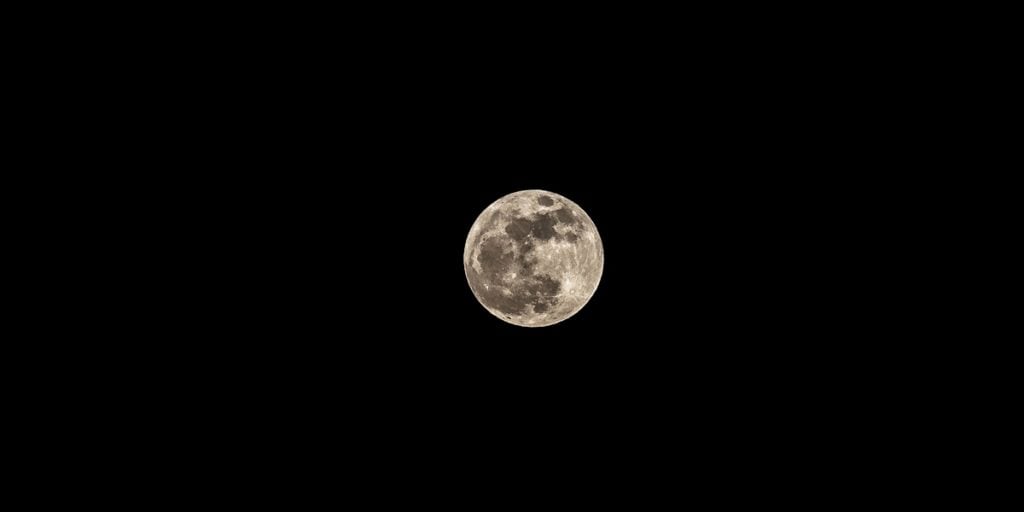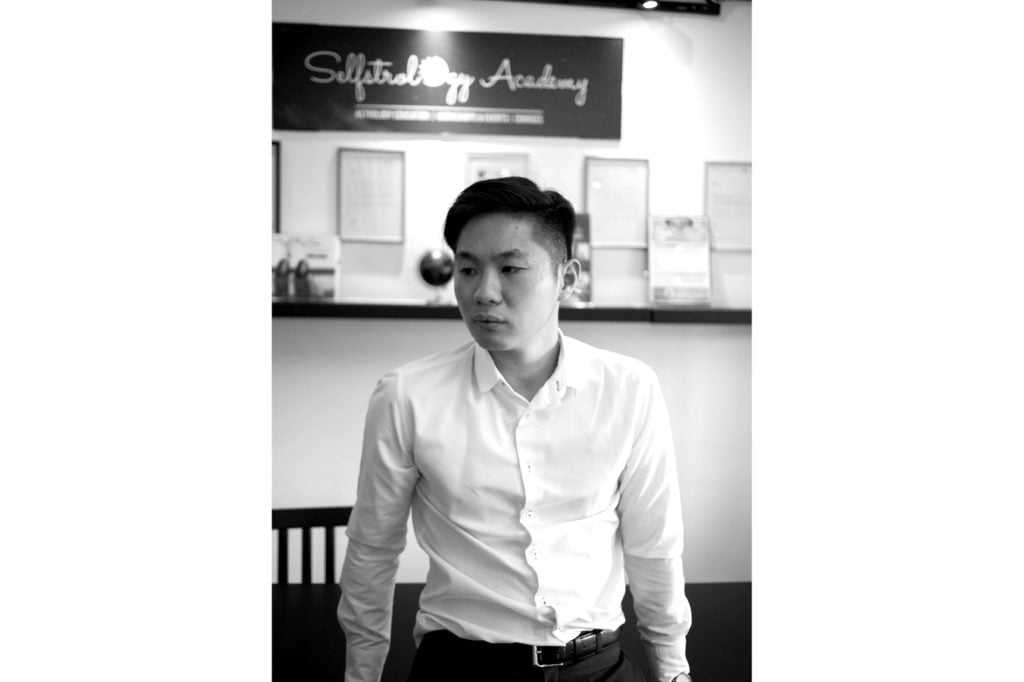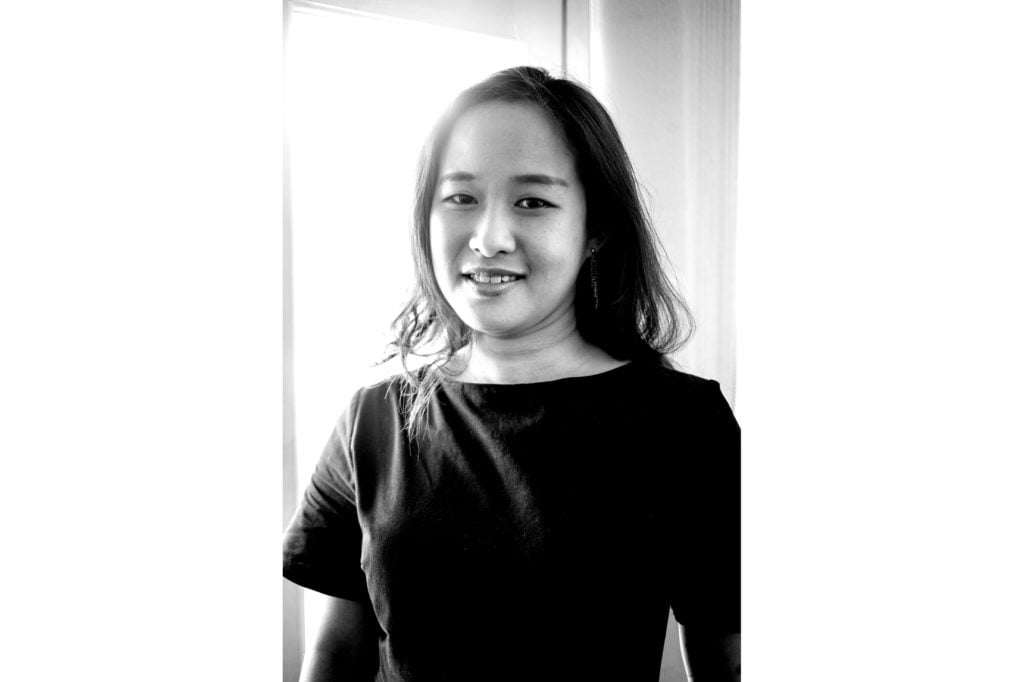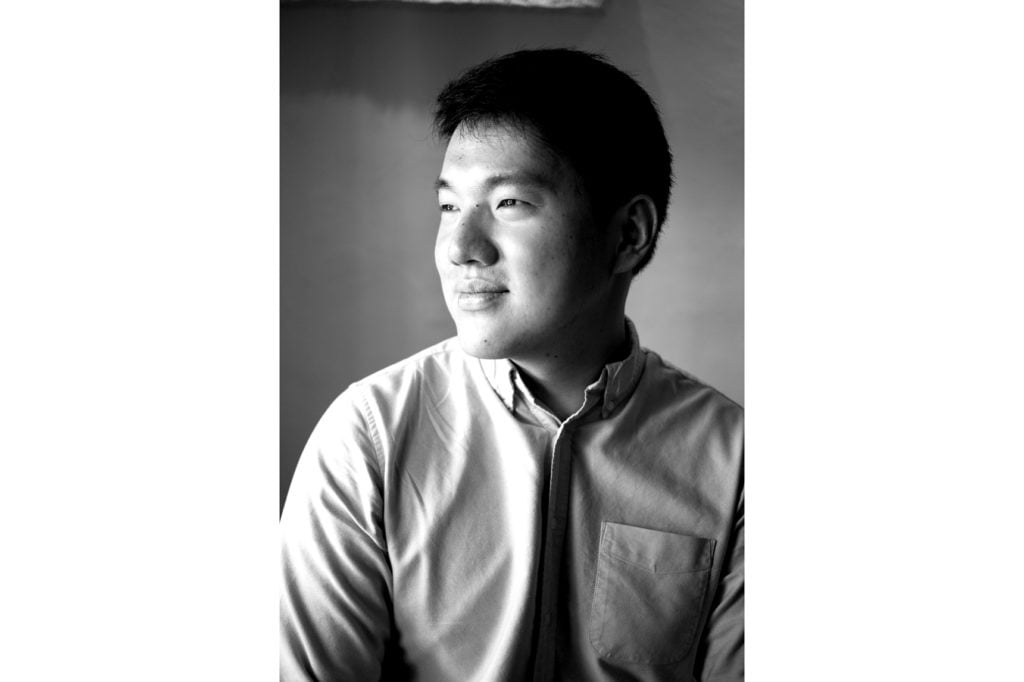In Singapore, Astrology’s Resurgence Amongst Millennials
By Kames Narayanan, 11 July 2018
Credit: The Devil Saint/ Flickr
“We are born at a given moment, in a given place, and like vintage years of wine, we have the qualities of the year and of the season in which we are born,” once said prominent Swiss psychiatrist Carl G. Jung on the topic of astrology. To the uninitiated, the vast universe of astrology can be condensed thus: an understanding of planetary alignment at the time of birth that influences an individual’s inherent character traits, abilities and short comings.
Barely the tip of a convoluted conundrum dating centuries back, the practice of astrology, beyond its overarching principle, further diffuses into Western and Eastern practices. The first organised system of the former dates back more than 4,000 years ago in Babylon. Its Eastern equivalent, Chinese Bazi, directly translated as “Eight Characters” (better known as “Four Pillars of Destiny”), was founded in the Song dynasty and further developed more than 200 years ago in the Ming dynasty.
While the influence of celestial bodies has been developed throughout generations, by human experience and in-depth study, its modern day influence is largely stripped down to mere frivolous indulgence. Growing up, quiet reading sessions at the school assembly meant poring over the day’s horoscope readings parked under the entertainment section of the local newspaper. The habit continued into my early teenage years when visits to the magazine stands also meant sieving through the various monthly publications’ horoscope projections and cross-referencing to “fact” check. My juvenile self was not so much in search for a sign from the universe but rather a pursuit of self-amusement. When I progressed into adulthood, along with adolescent naivety, the routine of looking up horoscopes weaned off.
Astrology, on the whole, has been subjected to the ebb and flow of the times. When the cast of “Hair”, a widely popular American musical, proclaimed the 1960s as the Age of Aquarius (the 2,000- year period after the Earth is said to move into the Aquarius sign), the audiences were sold. The lifestyles in the ’60s and ’70s then echoed the astrological signifiers of the Aquarius: freedom, non-conformity and democracy. In the subsequent years, the conversation on the topic subsequently fell into the background, its presence, dismissed to the last few pages of a newspaper or magazine. What it never lacked, however, was a following. French queen Catherine de’ Medici had Nostradamus as her astrologer, Queen Elizabeth I was advised by John Dee and other prominent figures like Napoleon, George Washington, J.P. Morgan, Ronald Reagan and Christian Dior are also famously known to have also turned to astrology for guidance.
Today, the dormant practice finds itself in the limelight again and its resurgence, displayed on the forefront of social media. #Astrologyhas been tagged in more than two million posts, a bulk of which are tongue-in-cheek memes riffing off horoscopic character traits and forecasting planetary shifts: Mercury is in retrograde; Saturn is looming over all of your personal planets; full moon is in Cancer. A marker of the cultural zeitgeist, the content shared on the internet is a reflection of millennial interests, amongst which, astrology ranks high.
Skimming the surface, the inherent appeal of astrology can be pointed to its universal appeal. Believer or non, it resonates with most. And its purveyance in the recent years has been inescapable. Beyond the digital sphere, the fashion industry, most notably, has developed a keen interest in the celestial planets. At Christian Dior’s Spring/Summer ’17 haute couture presentation, the signs of the zodiac was incorporated into the maison’s dreamy gowns; Peter Dundas littered his swan song at Emilio Pucci with astrological motifs; and arbiters of downtown New York cool, Opening Ceremony, produced T-shirts and sweaters inspired by zodiac signs. Jewellery brands like Tiffany & Co. have also long ago jumped onto the bandwagon with zodiac-inspired charms and pendants.
These observations, however, run the risk of oversimplification. The contemporary appeal of astrology amongst the millennial generation runs deeper. Astrological readings have come to be understood with a sense of seriousness and greater insight rather than a generic regurgitation of human traits. This burgeoning interest can be parked under the general millennial pursuit of a lifestyle steeped in holistic wellness: healing crystals, salt cave tours, yogic escapades, and more, are all the rage.
It also presents an antidote to instances of personal grievances and discomforting uncertainty. When life gives us lemons, rather than make lemonade, millennials seek a higher order for conviction on dealing with bumps along the road. Interestingly, according to survey data by the American Psychological Association, millennials have been the most stressed generation since 2014, and also the generation most inclined to say that their stresses have increased in the past year since 2010.
Locally, Singaporeans have earned a name for weathering pressure cooker conditions to the extent that an entire generation has come to be known as ‘Generation Stress’.
Living in the thick of political upheaval, global unrest and a future that spells more gloom and doom than rainbows and butterflies, astrology is looked upon as an avenue of hope. To some, it is a navigational tool and an avenue for self-betterment. What begins as a flippant gratification or search for hope deepens, at times, blossoming into a burgeoning interest that eventually prompts individuals to delve deeper into the topic. The result: a new crop of millennial practitioners who side-step the age old conventions of an astrologer.
“My interest in metaphysics started from when I was a kid, my mother introduced me to numerology. Later, I began learning astrology on my own when I was about 13 or 14 years old all the way until I was about 18 years old. Then, I found my teacher and started taking classes about three years ago,” says Jeremy Tan, a 26-year-old astrology practitioner.
Tan’s teacher, 33-year-old May Sim, the first Asian to graduate from the International Academy of Astrology (IAA), first picked up astrology as a hobby when she was a student. This later developed into a full on career path as she pursued a second degree — her first was an English Literature degree from the National University of Singapore — in the field and began her own astrology academy and consultancy firm, Selfstrology.
Credit: Tung Pham
May Sim, an English literature graduate from the National University of Singapore, made the bold decision to pursue her interest in astrology full-time.
A far cry from the stereotypical astrologer who is expected to be a wrinkled elderly in a flowing robe and sporting a head full of greying hair, and meditating within sacred grounds, these young masters are indistinguishable from the pedestrian. The modern sensibilities do not end there. Echoed in the practice itself, cumbersome mathematical calculations formulated on paper in the past are now navigated with the aid of modern-day mobile applications.
“All I need is my iPad, there is an app that generates the chart. There is a formula to it but I don’t think any modern-day practitioner plots the chart by hand. Typically, we use the app to generate the chart and then interpret it from there,” shares 32-year-old self-taught Chinese metaphysics consultant Sean Chan.
Credit: Tung Pham
A self-made man, Chinese meta-physics consultant Sean Chan has to-date offered his services to more than 700 people. Additionally, he also runs an online blog where he shares his insight into various topics pertaining to his field of expertise.
What ensues in the days after is the practitioner’s interpretation of an individual’s elemental or natal chart. Conducting most of his consultations online (mainly to aid efficiency), Chan then develops an in-depth report that explains the workings of the chart and its formulated reading relative to the individual. Tan, too adopts a similar method of presenting his analysis into words, which he later shares with his clients.
To sticklers for the old-fashioned, the legitimacy of generating charts using technology, is often called to question. Can anyone and everyone then foretell the rest of their lives with the click of a button? The answer is a flat-out no. Years of study and practical experience are amassed by these practitioners, albeit young, to accurately interpret charts.
“You need to know how to interpret the charts. I studied books on Chinese philosophy and metaphysics intensely for two years. Every night, I would grab a can of beer, head over to Bishan Park and spend the night reading,” says Chan. “I had to read books that were written in classical Chinese from the Qing and Ming dynasties and digest whatever I could.”
The accuracy in mapping one’s life’s trajectories through the medium of astrology is generally agreed to be subjective to the prowess of the practitioners themselves. In a conversation on astrology, reliability is a tricky subject to approach. Astrology, is after all, pseudo science.
“I would relate the question of whether astrology is an art or a science to architecture. Is architecture an art or science?” asks Sim. “I would think that in order to construct the building, you do need to know structure. You need to know how to build a wall but once the building stands on its own, you then start talking about expression, about how the building can be made to represent something else. You have to have both.”
Discussions on astrology more often than not are skewed towards the argument of whether it bears truth or otherwise. As the medium picks up speed on mass media, so do the efforts to perpetuate and debunk myths. The riposte remains largely split. Believers, largely fueled by ancient scriptures and anecdotal evidence — Chan once accurately charted a car accident down to the date, month and year of occurrence and Sim predicted the arrest of a suspect — have forged the practice forward.
On the other hand, it remains arbitrary to naysayers. By way of approaching astrology through a contemporary lens, the seeds of a newfound perspective have been sown. The millennial astrologers approach their expertise as a life coach who have found leverage through understanding celestial patterns.
“To me, astrology is about practicality. I hope to value add to my clients and I hope to provide some sort of a healing to the people who I encounter. When they open up to me and have a vulnerable conversation, that is when I believe they are befitting from my services,” says Tan.
Sharing similar sentiment, “The motivation is never about the money. It is always about helping clients transcend the chart and do better for themselves than what might be projected in it,” says Chan.
Equipped with this understanding, the topic morphs into a more palatable debate. Sought out not as an oracle crystal ball in peeking into the future but rather a tool for deeper contemplation, the consumption of astrology leans towards the objective. Where fate remains open-ended, the lights may guide you home but where you call home, entirely resides in the choices that you make.








